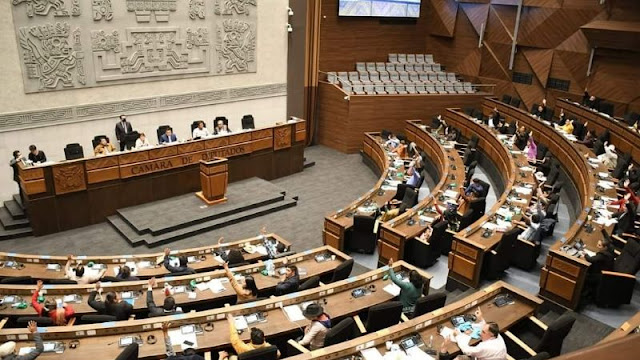It was proposed that the sanctions should also apply to magistrates, judges, lawyers and others. The bill was sent to the Senate.
The plenary of the Chamber of Deputies approved yesterday Bill 179/2021-2022, which establishes modifications to the Penal Code, Code of Criminal Procedure and the Code of Penal Execution and Supervision, and determines to increase the penalties from 5 and 10 years to 20 years in prison for judges who benefit those accused of the crimes of femicide, infanticide and rape.
"We cannot remain indifferent to these facts that have caused mourning and pain in Bolivian families. In attention to the victims and their families we proposed this project to give them back their dignity. The purpose is not only to toughen the penalties so that other judges or prosecutors do not dare to commit these crimes. We are also going to avoid that feminicides, infanticides and rapists are free in the streets", emphasized the president of the Commission of Plural Justice, Public Ministry, and drafter of the norm, the congresswoman Lidia Tupa.
The bill was sent to the Senate for review and approval.
Among the modifications made to the Penal Code are the adjustment of article 173 on Prevaricato, to extend the penalty of imprisonment up to 20 years for judges or prosecutors who issue resolutions contrary to the Political Constitution of the State and other norms, in cases of femicide, rape and infanticide. The penalty for this crime is currently 5 to 10 years.
In the case of article 174 referred to Consortiums, the sanctions of 5 to 10 years only reached judges, prosecutors, lawyers and other assistants of the justice service who seek economic benefits in an illegal manner.
Now, with the proposed regulation, this penalty will also apply to magistrates, judges, conciliators, lawyers, police officers, experts, doctors and social workers.
In addition, it establishes modifications to article 231, so that those accused of feminicide, infanticide and rape, cannot enjoy other precautionary measures other than preventive detention.
It also projects changes in article 239 so that the person deprived of liberty for acts of feminicide, rape or infanticide, who is seriously ill or terminally ill, may request the cessation of the precautionary measures as long as he/she can prove it through a medical certificate issued by the Institute of Forensic Investigation (IDIF).
It also modifies Article 174, which establishes that parole will not proceed in the three crimes of femicide, infanticide and rape.

No comments:
Post a Comment